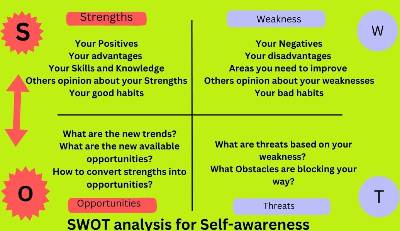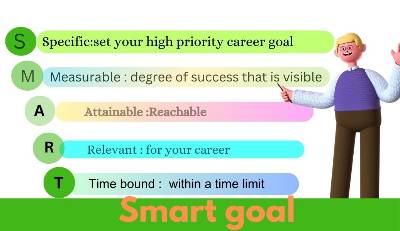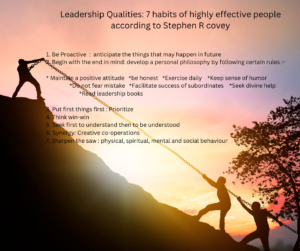
Introduction : In a world that constantly demands effective and visionary leaders, developing leadership qualities has become an essential pursuit. In this article we shall examine the idea of
“Ethos in Leadership Development”
Is it possible to transform individuals to the realm of exceptional leadership with great vision, who can face adverse situation with courage, embrace challenges as opportunities for growth and inspire their team members while fostering a positive and inclusive work environment within the organization?. This transforming process calls for commitment, introspection, and ongoing improvement.
Ethos refers to the ethical appeal and credibility of a leader. Ethos forms the bedrock of effective leadership, enabling leaders to inspire and influence others through their character and credibility. Leadership development methods must cultivate and nurture ethos within leaders and stimulate critical thinking and ethical decision-making skills, enhancing their ability to navigate complex situations.
Leadership Development methods
People can use their leadership skills and make a positive difference on the world by putting a strong emphasis on self-awareness, continuous learning, emotional intelligence, effective communication, Problem solving and team building. Even though some people possess excellent leadership qualities, through dedicated learning and vigorous practice anyone can become a great leader who can make strategic decisions.
Emotional IQ (EI): The Secret to Powerful Leadership, Emotional intelligence (EI) is a skill that helps leaders resolve problems, effectively control their emotions, and forge deep connections. EI gives leaders the ability to establish stronger bonds with their people, foster trust, and productive workplace.
Continuous learning:-To become a better leader, one needs a growth mind set. Accept challenges, see failures as learning opportunities. Maintain curiosity, look for new opportunities, and actively pursue professional advancement. Learn new skills, keep up with industry trends and create a mentality that encourages creativity, flexibility, and lifelong continuous learning
Effective communication and Inter personal skills: To build rapport and a good communication style, acquire the ability to express thoughts clearly, pay attention to others’ opinions, and offer constructive criticism. The ability to modify one’s communication approach to various audiences and improving verbal and nonverbal communication abilities is also very much essential
Self-awareness: Understanding one’s strengths, weaknesses, values, and convictions is crucial for successful initiative. Self-awareness enables pioneers to take advantage of their strengths and focus on areas that need improvement
Creating and Empowering Teams: No leader can excel by themselves. Encourage collaboration and acknowledge the viewpoints and contributions of your team members while fostering a positive and inclusive work environment. Develop empathy, and negotiation abilities that unleashes the full potential of the teams.
Strategic leadership development programmes
Strategic leadership development programmes are designed to create leaders with the vision, adaptability, and skills necessary to guide organisations towards their goals.
Leadership assessments, workshops, coaching sessions, and experiential activities are versatile approaches that cater to diverse learning styles and preferences. These methods help leaders develop specific skills and competencies, allowing them to unleash their full potential. Assessments provide valuable insights into strengths, weaknesses, and areas for improvement, enabling leaders to focus their development efforts.
Training workshops enhance leadership skills, while coaching and mentoring offer personalized guidance. Leadership retreats and conferences offer immersive experiences and networking opportunities. Customization allows leaders to find the right fit for their needs and goals, while continuous learning and adaptability are essential for leaders to stay relevant in a dynamic leadership landscape for critical thinking and ethical decision-making abilities.
SWOT analysis for Self-awareness
SWOT analysis helps leaders understand their strengths, weaknesses, opportunities, and threats, enabling them to identify areas for improvement and growth. It also helps leaders strike a balance between ambition and realism, considering resources, constraints, and timelines. Identifying weaknesses requires confronting limitations and acknowledging areas for growth or support. Leaders must embrace this perplexity and view weaknesses as opportunities for development.
Conduct SWOT ( strength, weakness opportunities and threats ) analysis

1.Conduct SWOT analysis to identify your strength, weakness opportunities and threats, take steps to identify your opportunities and transform your weaknesses into your strengths
2.Based on your strengths you can identify your career paths and channelize your education field accordingly
3.Find your career and gain experience in that field. Try to do part time work, internships or volunteer work
4.Set the goal and create plans to achieve that goal and Perform well in that field
5.Participation in Professional groups in the same field is a development booster
Smart goal image

SMART Goal Setting: Setting SMART stands for Specific, Measurable, Achievable, Relevant, and Time-bound. When leaders set SMART goals, they define their objectives with precision, ensuring they are tangible and measurable. Leaders with a roadmap to success, enabling them to track their progress, celebrate milestones, and make adjustments along the way. SMART goal setting harnesses the power of intention and accountability, driving leaders towards continuous improvement.
Setting goals should help the employee to adhere to the vision and mission of his Organisation.
Consider the case of leader ship development for a manager in an organization. The manager set his long term and short term career goal to Improve his leadership qualities by following S.M.A.R.T
S
Specific means that the objective well defined and is focused
M
Measure success stated in terms of quantity, a specific outcome
A
Make sure that the employees are capable of achieving the goal
R
Make sure that the goal of employee is in complete alignment to the Mission of the Company
T
Make sure that the goal must be completed within the time limit
Motivation and Leadership
Motivation: Developing leadership qualities requires a high level of motivation to overcome obstacles and stay focused. Motivation can stem from intrinsic factors, such as personal fulfilment and a sense of purpose, or extrinsic factors, such as recognition and rewards. Leaders can cultivate motivation by aligning their goals with their values, celebrating progress, seeking support from mentors and peers, and continuously reminding themselves of the impact their leadership can make. This empowers leaders to persevere through challenges and continue their growth as effective leaders.
De motivation: occurs due to
- Setting of unrealistic goals
Lack of opportunity
Unpleasant organizational environment
Job-securityAccording to Maslow’s Hierarchy of needs, motivation is the result of satisfying five needs in ascending order.
Physiological needs are basic requirements for sustaining human life. Water, Food, clothes, sleep.
Security or Safety needs are the needs to be protected from the physical dangers such as a safe place to live, job security etc.
Social needs are relate to interaction with others in society.
Esteem needs relate to reputation, status and self-respect.
Self-Actualization needs are difficult to fulfill such as wisdom.
The 7 Habits of Highly Effective People according to “Stephen R. Covey”

1.”Be proactive”:
Proactive behavior means taking the responsibility in life and always do the things positively and improve the situation. Proactive people do not blame the circumstances.
2.”Start with the end in mind “
To be effective one needs to act based on principles and they have to define their goals and take measures to achieve them.
3.” Put first things first “: Plan and Prioritise the thing to do. Using the chart given below it is possible to sort out the things to do.
| Urgent | Not urgent | |
| Important | X | Y |
| Not important | Z | M |
4.”Think win – win”
This habit is about creating a highly ethical situation where everyone can win and be happy
5.”Seek first to understand and then to be understood”
Master the art of listening, keep eye contact ,be respectful and create an atmosphere of effective communication
6.”Synergy”
Create a habit of co-operation and team work for effective problem solving
7.”Sharpen the saw”
Develop a balanced system of four areas in life, i.e. physical, social, mental and spiritual behavior
Conclusion
A leader with a strong ethos commands respect, fosters loyalty, and influences positive change within their organization or team. Leaders must embrace continuous learning, adaptability, and a growth mindset to make the most of the available tools and techniques. Leaders can embark on a transformative journey of leadership development, unlocking their full potential and making a positive impact in their organizations and communities
What is the importance of leadership development?
Leadership development is a dynamic and transformative process that involves the acquisition of skills, knowledge, and qualities necessary for effective leadership. To embark on this journey, individuals must understand the tools and techniques available.